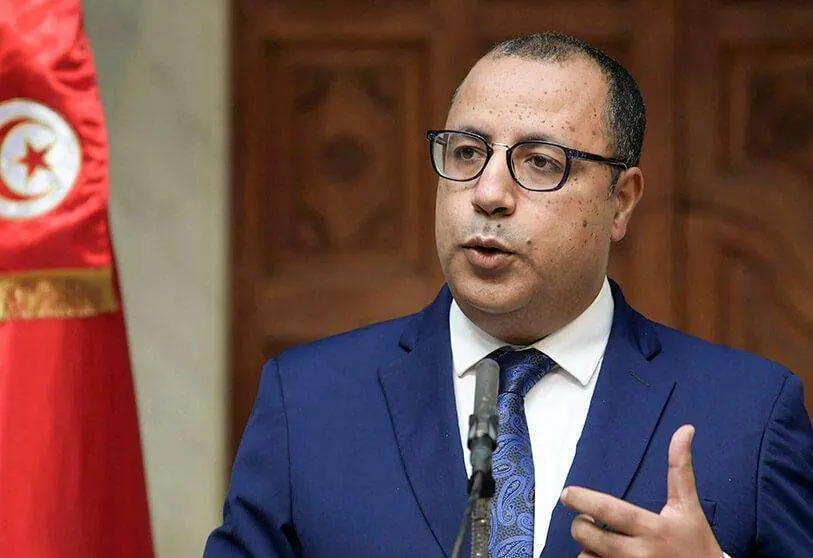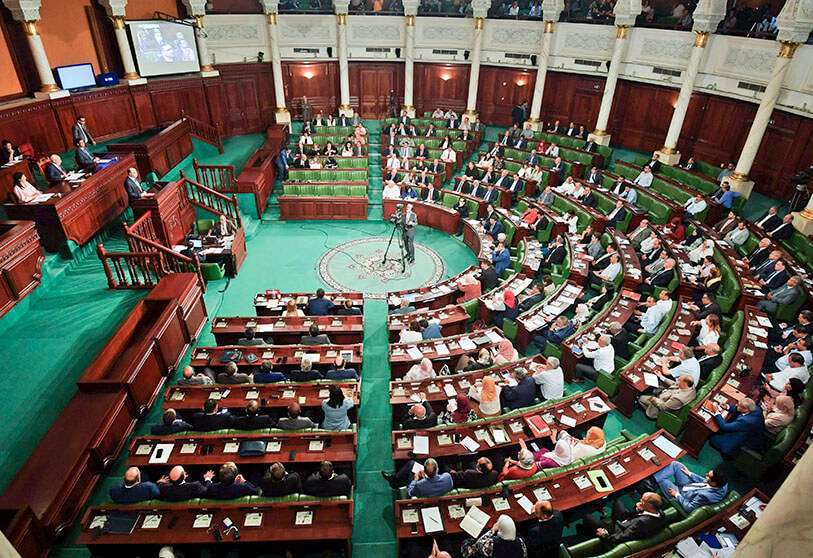Tunisian Prime Minister appoints new ministerial appointments

Tunisian Prime Minister Hichem Mechichi, who gained the confidence of the Assembly of People's Representatives (APR) on 2 September 2019, has just undergone a major reshuffle, of the 25 government ministers, 12 have been replaced.
Hichem Mechichi appointed 12 new ministers as part of a major overhaul of the government team. With this decision, the executive hopes to inject new energy into the government team, which has been widely criticised for its inability to master the economic crisis that has plagued Tunisia since 2011.
The political class, more fragmented than ever, is being torn apart as the social emergency is exacerbated by the coronavirus pandemic, in addition to rising prices, persistent unemployment and the growing failure of public services.
However, the Tunisian Constitution of 27 January 2014, adopted after the Revolution, established an unstable bicephalic system that makes the head of state, elected by direct universal suffrage and with greater popular legitimacy, a president without real power.
Kais Saied, president of the Republic of Tunisia, and Hichem Mechichi are at odds over their respective powers and political alliances, endangering the stability needed to promote the much-needed reforms.
The speech of the head of government accompanying the disclosure of the names of the 12 new ministers and explaining the reasons for their election, as well as the missions awaiting them, shows a priori a promise to Tunisians of a new approach to governance in that the current situation, marked by the dizzying rise of the COVID-19 epidemic, can no longer be affected by the lack of cohesion and the lack of synchronisation of government action.
During the conference, the Prime Minister stated that the purpose of the change was to improve efficiency and strengthen arrangements for the implementation of government policy and the execution of its plans, following an assessment of government action and its level of internal coordination.
He also noted that the change stemmed from a sincere desire on the part of this new government group to comply with and respect the Constitution that had been brought about by the revolution of freedom and dignity commemorated a few days ago.
This reorganisation was decided by the first two forces in Parliament - Ennahda and Qalb Tounes - as soon as the composition of Hichem Mechichi's Cabinet was announced. At that time, both sides had placed their trust in the team of technocrats formed by Mechichi, thus ruling out the possibility of the dissolution of Parliament, in the hope of carrying out a reorganisation as soon as possible.

Barely a month after gaining the confidence of Parliament, the head of government dismissed his minister of culture, Walid Zidi, and then, in January 2021, the minister of the interior, Taoufik Charfeddine.
The former was dismissed for having expressed his opposition to the head of government's decision to suspend cultural events in view of the resurgence of the pandemic. The second was dismissed for making new appointments to several national security directorates without consulting Hichem Mechichi.
Mechichi appointed Walid Dhabi as the new interior minister, after dismissing Taoufik Charfeddine, who is close to President Kais Saied, a move that underlines the tensions between the country's two most powerful leaders.
Hedi Khairi was appointed health minister following criticism of the government's handling of the coronavirus pandemic, and the official date for the start of vaccinations in Tunisia is not yet known.
Controversies have also shaken the ranks of coalition partners supporting the government, and the Karama party has refused to vote on reorganisation and has threatened to leave the coalition.
Mechichi appointed Youssef Zouaghi as justice minister, Sofien Ben Touns as energy minister and Oussama Kheriji as agriculture minister.
Otherwise, the appointments in the various departments were received favourably. Despite this, the whole remodelling process suffers from a deep flaw: the absence of women. In any case, no woman seemed to meet the criteria of competence and independence set by the head of government. However, parity is a constitutional principle. A Constitution that Hichem Mechichi does not yet have within his grasp, as he has declared that he will put the new ministers to a vote before the Assembly of People's Representatives. However, this practice is governed by only one article of the Assembly's rules of procedure and is not mentioned in the Constitution.








